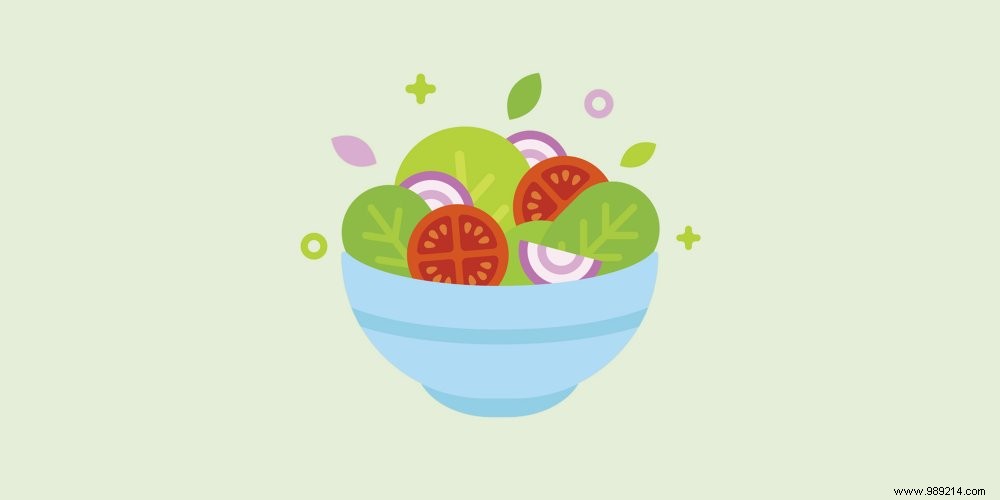 When it comes to dieting, we often hear everything and its opposite. And among the so-called miraculous recipes for melting effortlessly, some methods turn out to be much more dangerous than you might think. Here are four diets you should never try. Under any circumstances.
When it comes to dieting, we often hear everything and its opposite. And among the so-called miraculous recipes for melting effortlessly, some methods turn out to be much more dangerous than you might think. Here are four diets you should never try. Under any circumstances. Fatigue, deficiencies, feeling of failure... Beware of the most trendy revamped diets, supported by a pseudo-scientific and eco-appealing discourse. Some diets have serious consequences on our body.
Decryption of four absurd and even dangerous methods , which put us flat and do not work, with the seasoned eye of Hélène Tinevez, dietician and designer of the slimming cure at the Roscoff thalassotherapy.
They are called "pineapple diet", "cabbage soup diet", " pink diet", "white"... Whatever their name, they consist of eating a single food at will. They are effective in the short term but deeply unbalanced and deficient. The starter effect on which we count quickly evaporates because of the devastating impulses of compensation which follow it.
According to Hélène Tinevez, if this diet is not accompanied by a change in eating habits, there will be weight regain, yoyo effect and feeling of failure, with a poor physical and psychological self-image. Because as our expert explains, "not feeling capable of succeeding with a method sold as easy can eat away at you from the inside."
As its name suggests, it is a diet based on water, broths and herbal teas. Admittedly, the body is hydrated and eliminates toxins, but this diet is sorely lacking in fats, carbohydrates and proteins. So beware of hypoglycaemia and other “pumps”. And without protein intake, muscle wasting begins.
Weakened, the body draws on its own protein reserves to produce energy. Beware of the increase in the level of acetone in the blood which reduces the feeling of hunger, which explains the euphoria of the first days which maintains motivation.
Video of the day:"Over a day, water fasting (for philosophy, for well-being...), it goes away ; over a week or fifteen days, as we often see, it becomes absurd", explains our dietician.
"A start of muscle wasting appears, including in the heart muscle, and there may be tachycardia problems. In addition, kidney function runs at full speed (sometimes too much) to eliminate the surplus of nitrogenous waste due to the muscle protein breakdown. This overly restrictive diet disrupts our eating habits and leads to food compulsions that often did not exist before.
A low-carb diet that its followers sometimes call Atkins, "Miami " or Scarsdale diet.
It offers a diet rich in protein (fish, meat, eggs, cheese) and fat (oil, butter, mayonnaise). Carbohydrates are prohibited:sweets, chocolate, fruits and fruit juices, starches, legumes, dried fruits. Haro on alcohol, coffee and tea.
Rapid weight loss guaranteed in the first six months, higher than in a conventional diet. However, a year later, the weight regain is assured, even greater than the loss.
On this subject, Hélène Tinevez tells us that "these diets actually manage to lower the level of insulin (the hormone secreted during a rise in blood sugar following food intake and which promotes fat storage, editor's note) in the blood. However, there is also an increase in bad cholesterol and a decrease in the consumption of protective foods for the heart."
With less than 20 grams of carbohydrates per day in the attack phase and less than 60 grams per day in the stabilization phase, there is hypoglycaemia, increasing fatigue, a risk of frequent constipation linked to the lack of fiber, and sometimes diarrhea linked to excess fat.
"At the emotional level, there is an increase in anxiety and nervousness linked to the lack of magnesium. At the muscular level, cramps and spasmophilia attacks occur."
These meal replacements can be interesting once in a while, but not more. They are to be avoided over several weeks, due to monotony and saturation among other things.
"If you don't drink at least 1.5 to 2 liters a day, the concentration of uric acid in the blood will increase due to excess protein, with the formation of crystals and the accumulation of toxins. Magnesium is eliminated more in the urine, which leads to fatigue, emotionality and cramps", specifies our expert.
Read also: